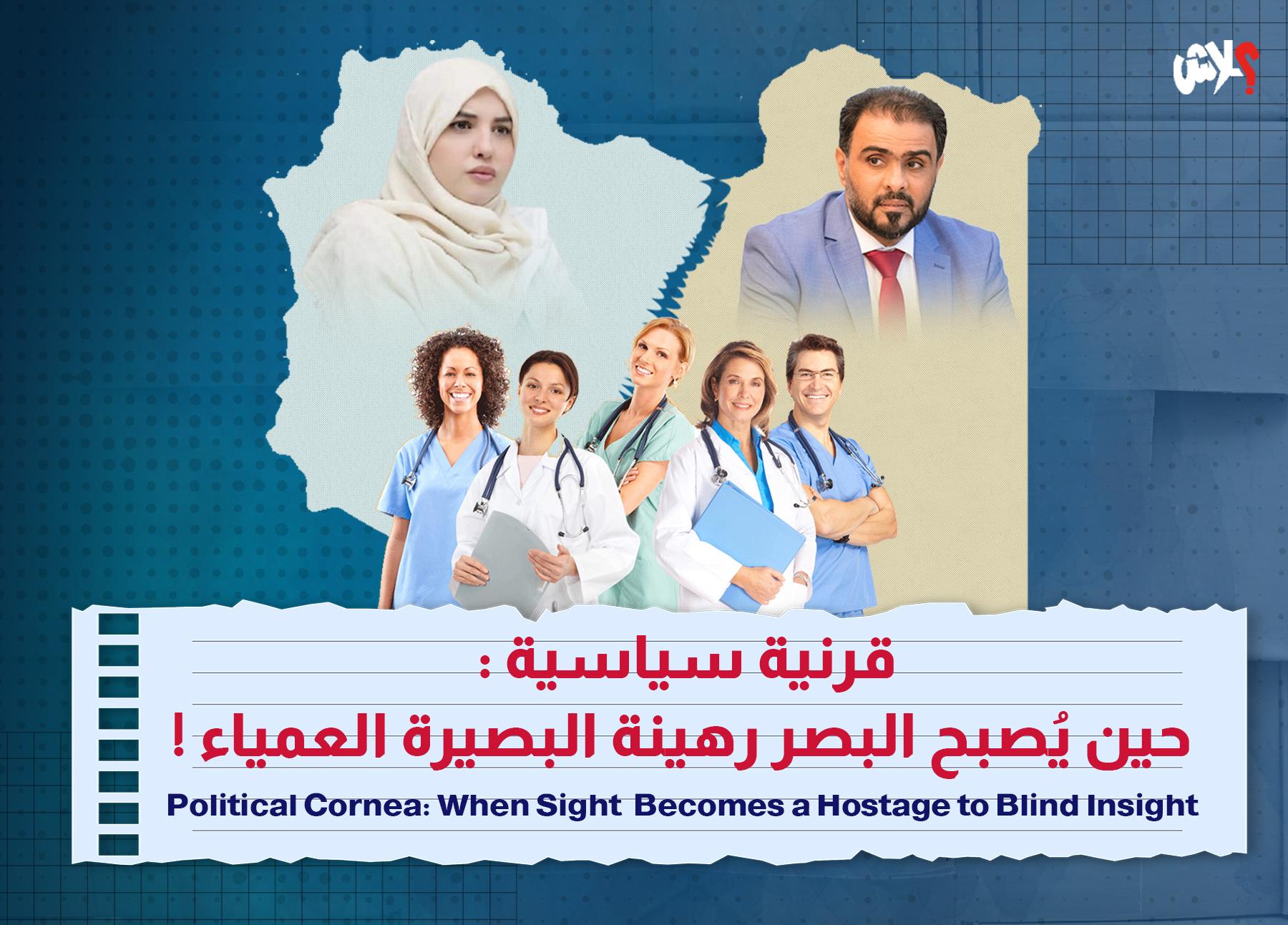A Political Cornea: When Vision Becomes Hostage to Blind Insight
Some time ago, we published an article titled “When Winds Collide, the Sail Takes the Hit”, criticizing the “co-wife governance” approach practiced by Libya’s rival governments in the east and west. We showed how many decisions weren’t made out of responsibility or national interest, but rather out of political pettiness and one-upmanship leaving the citizen to pay the price every time.
Unfortunately, this same surreal absurdity has reappeared not over the start of a school year, or the announcement of Ramadan, or the dismissal or appointment of a mayor but this time, over something far more painful and inhumane. The eastern “co-wife” Hamad’s government has shocked us with a childish act that speaks volumes about the juvenile mindset of this phantom administration and its equally delusional ministers.
In a scene that encapsulates the absurdity of Libya’s ongoing power struggle, eye patients in Tobruk and surrounding areas desperately awaiting cornea transplants to regain their sight have now become pawns in a declared political battle. A medical team arriving from Tripoli was prevented from entering the city under flimsy pretexts: claims of “unqualified personnel” or “non-compliant corneas,” as if Libya’s civil war has now shifted from battling over territories to scrutinizing the credentials of doctors and the biological tissues they carry!
The bitter irony here is that corneas are simply human tissues used globally under standardized procedures. Libya’s National Cornea Transplant Authority has already performed dozens, if not hundreds, of such transplants across the country. But it seems Libyan politics is capable of inventing its own special standards for human tissue adding yet another hollow achievement to its imaginary trophy shelf.
This isn’t an isolated incident; it’s just another episode in a long, dark comedy. Not too long ago, authorities in Tripoli and Benghazi disputed the credibility of COVID-19 vaccines. Before that, shipments of medicine were rejected, and health officials were sacked merely for traveling to Tripoli to collect them. It’s as if Libyan politicians have discovered they can weaponize even IV solution bags for political gain. At this rate, they might someday be nominated for a Nobel Prize in Absurdity.
But behind this dark satire lies a silent human tragedy. A patient who has waited years for a cornea transplant perhaps on the brink of total blindness may now lose his sight, and with it, the light of his life. Why? Because a political debate over “cornea quality” took longer than his medical emergency could afford. An ordinary citizen has become hostage in a tug-of-war between governments that forget they’re not only fighting over oil but over people’s lives.
That patient in Tobruk, who was filled with hope upon hearing that a transplant team was coming to his city, who put his name on the waiting list, and whose family was preparing for his discharge with the same excitement they would for a wedding they are the ones paying the price. Meanwhile, prime ministers and their ministers jet off to Europe in private planes… to remove a “tiny gallstone” that’s apparently more urgent than a fellow citizen’s blindness.
And the nauseating question that lingered in my mind after hearing this story: Do Libyan politicians need urgent medical testing for moral short-sightedness a condition that renders them blind to the suffering they cause? Or are they merely practicing a kind of political medicine, recklessly testing policies on patients who have no choice but to suffer the consequences?
One thing is certain: turning healthcare into a political weapon, hospitals into frontlines, and patients into pawns is an unforgivable moral collapse. At a time when the country desperately needs bridges of cooperation, all we see are walls of division. And when a “cornea” a symbol of restored vision is turned into a pretext for blindness, we know just how low we’ve sunk.
In the end, it’s worth reminding all parties: history won’t record your fake victories in stopping a medical team from entering a Libyan city. What it will remember is the crime of turning medicine into a battleground. The Libyan people can no longer wait for a “political cornea” to restore their leaders’ insight before their own vision is lost forever.

